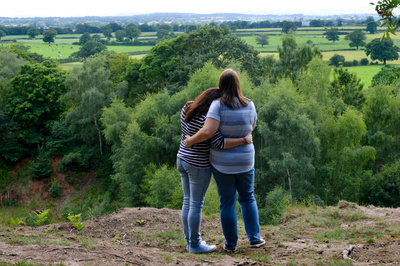 Overview: The COVID-19 pandemic has also caused a mental health crisis, with millions struggling with anxiety, depression, and loneliness. LGBTQ populations already struggled with these problems, and evidence has emerged that the pandemic has made them worse.
Overview: The COVID-19 pandemic has also caused a mental health crisis, with millions struggling with anxiety, depression, and loneliness. LGBTQ populations already struggled with these problems, and evidence has emerged that the pandemic has made them worse.
LGBTQ Populations And Mental Health
It has been well known that LGBT+ populations have more mental health concerns than the general population. Due to issues such as being disowned from family, being denied economic opportunities such as promotions or employment in certain industries, and medical concerns, LGBT+ people are more likely to deal with anxiety, depression, and other mental health concerns.
LGBT+ youth are more likely to be homeless, and LGBT+ elders are likely to have fewer friends.
Their status, its economic impact, and privacy concerns also make it less likely that LGBT+ individuals will seek medical treatment. Some are afraid doctors will disclose their personal lives to their families. Others have been subject to mistreatment by doctors and medical staff due to their gender identity status, or worry their partner will be denied access to their bedside.
This also will manifest in other ways. For example, substance abuse disorders are found at higher rates in LGBT+ populations, as untreated mental health concerns are a risk factor for substance abuse.
COVID-19 has caused a mental health crisis across all populations, and LGBT+ individuals are exposed to all of these risks, as well. For example, it has been more difficult and expensive to speak to a professional, the stress and anxiety have put pressure on people in recovery that may reopen the door to substance use, and the social isolation has created an epidemic of loneliness.
What The Research Says
 Researchers surveyed 1380 adults in the US from March 2020 to June 2020, asking about symptoms of mental health struggles, rumination, and perceived social support. These scores were then collected and analyzed as to whether they crossed a threshold of concern, a point where a mental health professional would suggest a course of action. 290 respondents identified as LGBT+.
Researchers surveyed 1380 adults in the US from March 2020 to June 2020, asking about symptoms of mental health struggles, rumination, and perceived social support. These scores were then collected and analyzed as to whether they crossed a threshold of concern, a point where a mental health professional would suggest a course of action. 290 respondents identified as LGBT+.
The LGBT+ group reported serious psychological distress in the previous 30 days, higher than the non-LGBT+ group. Some of this was due to the LGBT+ group being more racially diverse, younger, and more exposed to economic risk from the pandemic’s economic impact. Overall, however, it was clear that they experienced more anxiety and depression.
What Can Be Done?
First and foremost, LGBT+ people need to be heard. They need emotional support from the people within their communities and within their families. This can be their actual family or their “family of choice.”
Secondly, they will need more support from their environment and from the people around them. This may require some difficult conversations. In some cases, there will be issues from before the pandemic that will need to be discussed clearly and with honesty.
Finally, a supportive environment for people in recovery may be needed. While not everyone will have relapsed during the pandemic, it may be useful to step away from their current environment and seek a way back onto the path of recovery.
If you or someone you love needs that supportive environment to recover from substance abuse, Harris House can help. Contact us to learn more.








